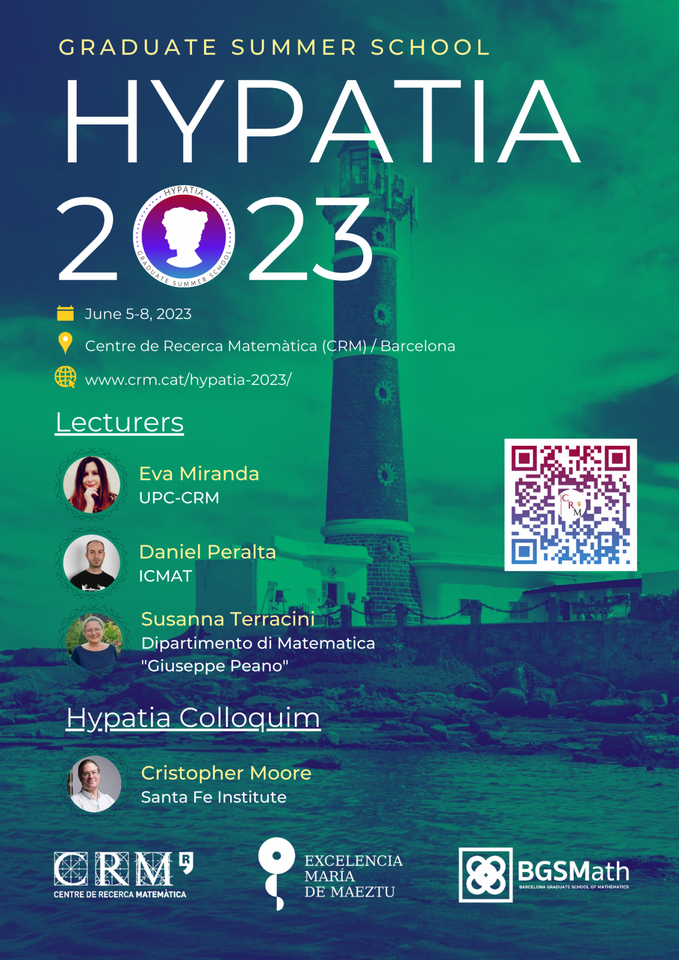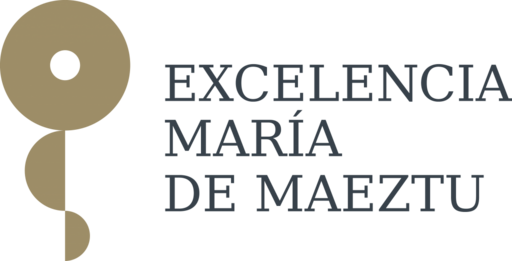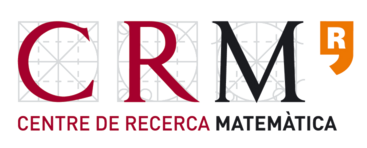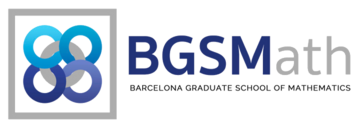REGISTRATION
- On-site Registration Fee: 275€
- Registration Deadline: 21/05/2023
SCHEDULE
Photo Gallery
Hypatia Graduate Summer School 2023
Sign into June 08, 2023
Registration cost: 275€ (100% onsite)
*Registration to the school covers: coffee breaks and lunches.
Attending the colloquium is free but registration is compulsory by filling out the following form
Declaration of intent

This summer school series aims at training their participants in key strategic problems in mathematics and their applications, with the core idea that theory and applications strengthen each other. The school is focused in training of young researchers whilst opening new fields for senior ones.
The Hypatia Graduate Summer School will consist in two keynote courses on subjects of exceptional promise and scientific importance delivered by highly distinguished speakers in the area plus a high-level colloquium on a complementary subject.
The Hypatia Graduate Summer School will be developed in an informal atmosphere based on discussions, exchange of ideas and critical analysis of results. Moreover, to honour its namesake, it is committed to work under a friendly gender perspective that highlights the role of women in mathematics and encourages and helps the participation and promotion of young female researchers at a professional level.
Lecturers

Eva Miranda
UPC - CRM
Eva Miranda is a Full Professor at Universitat Politècnica de Catalunya in Barcelona and member of the Centre de recerca Matemàtica-CRM. She is the director of the Laboratory of Geometry and Dynamical Systems. Distinguished with two consecutive ICREA Academia Prizes in 2016 and 2021, she was awarded a Chaire d’Excellence de la Fondation Sciences Mathématiques de Paris in 2017 and a Friedrich Wilhelm Bessel Prize by the Alexander Von Humboldt Foundation in 2022. Miranda is the recipient of the quadrennial François Deruyts Prize in 2022, a prize awarded by the Royal Academy of Belgium. She has been named the 2023 London Mathematical Society Hardy Lecturer.
Miranda’s research is at the crossroad of Differential Geometry, Mathematical Physics and Dynamical Systems. Miranda is an active member of the mathematical community, a member of several international scientific panels and prize committees. She created an important school by supervising 10 Ph.D. theses and several postdocs.

Daniel Peralta
ICMAT
Daniel Peralta-Salas (Madrid, 1978) is a permanent faculty member at the ICMAT and Chair of the Group “Differential Geometry and Geometric Mechanics”. His research lines concern the connections and interplay between dynamical systems, partial differential equations and differential geometry. This includes different topics in fluid mechanics, spectral theory, conservative dynamics and geometric analysis.
He has published over 80 papers in high profile mathematical journals such as: Annals of Mathematics, Acta Mathematica, Duke Mathematical Journal, Annales Scientifiques de l’École Normale Supérieure, Journal of Differential Geometry, American Journal of Mathematics, Advances in Mathematics and Communications in Mathematical Physics.
He has been an invited speaker in more than 90 conferences, seminars and courses in national and international events, is a member of the editorial boards of the international journals Revista Matematica Iberoamericana (EMS), Qualitative Theory of Dynamical Systems (Birkhaüser) and Journal of Geometric Mechanics (AIMS), and member of the scientific advisory board of IMTECH (Institute of Mathematics of UPC-Barcelona Tech.).

Susanna Terracini
Dipartimento di Matematica "Giuseppe Peano"
Terracini was born in South London. She earned a laurea in 1986 in mathematics at the University of Turin, supervised by Fulvia Skof. She completed her Ph.D. at the International School for Advanced Studies in 1990. Her dissertation, Periodic Solutions to Singular Newtonian Systems, was supervised by Ivar Ekeland and Sergio Solimini. She was a researcher at Paris Dauphine University from 1988 to 1989, and became a faculty member at the Polytechnic University of Milan in 1990. In 2001 she became a full professor at the University of Milano-Bicocca, and in 2012 she returned to Turin as a professor.
One of Terracini’s papers on the n-body problem was selected for a featured review in Mathematical Reviews. She was the winner of the 2002 Vinti Prize, a prize of the Italian Mathematical Union for young researchers in mathematical analysis. In 2007 she won the Bruno Finzi Prize of the Istituto Lombardo Accademia di Scienze e Lettere. In 2020 she was awarded the Schauder Medal from the Juliusz P. Schauder Center for Nonlinear Studies at the Nicolaus Copernicus University in Toruń, Poland.
COURSES
COURSE 1: Contact geometry and the many facets of complexity of hydrodynamics
Lecturer: Eva Miranda (UPC-CRM) / Daniel Peralta (ICMAT)
Abstract:
In this course we will unveil various connections between three seemingly unconnected topics: contact geometry, fluid mechanics, and Turing machines.
The point of departure will be Euler’s equations with a focus on the study of stationary solutions. Our constructions combine techniques from various areas of mathematics that we will thoroughly analyze in this course. An important ingredient will be the close inspection of various notions of complexity of our constructions: dynamic, computational and logical. Several applications to Celestial mechanics will also be discussed.
SYLLABUS
Session 1 (Peralta-Salas): The Euler equation and Beltrami fields: Old and new.
Session 2 (Peralta-Salas): Complexity in Hydrodynamics: From Arnold to Turing. Introducing Turing machines.
Session 3 (Miranda): The mirror: Fluid dynamics via contact geometry
Session 4 (Miranda): Applications of the mirror: Periodic orbits and universality.
Session 5 (Miranda): A 3D Fluid computer via contact geometry
Session 6 (Peralta-Salas): An Euclidean Turing construction in dimension 3.
Session 7 (Peralta-Salas): Gaussian random Beltrami fields.
Session 8 (Miranda): From Kepler to the 3-body problem. Applications to Celestial Mechanics and open questions.
BIBLIOGRAPHY
- Cardona, Robert; Miranda, Eva; Peralta-Salas, Daniel; Looking at the Euler flows through a contact mirror, Proceedingsof the 8ECM, to appear
- Cardona, Robert; Miranda, Eva; Peralta-Salas, Daniel; Computability and Beltrami fields in Euclidean space. J. Math. Pures Appl. (9) 169 (2023), 50–81.
- Cardona, Robert; Miranda, Eva; Peralta-Salas, Daniel; Turing universality of the incompressible Euler equations and a conjecture of Moore. Int. Math. Res. Not. IMRN 2022, no. 22, 18092–18109.
- Cardona, Robert; Miranda, Eva; Peralta-Salas, Daniel; Presas, Francisco Reeb embeddings and universality of Euler flows. Extended abstracts GEOMVAP 2019—geometry, topology, algebra, and applications; women in geometry and topology, 115–120, Trends Math. Res. Perspect. CRM Barc., 15, Birkhäuser/Springer, Cham, [2021], ©2021.
- Cardona, Robert; Miranda, Eva; Peralta-Salas, Daniel; Presas, Francisco Constructing Turing complete Euler flows in dimension 3. Proc. Natl. Acad. Sci. USA 118 (2021), no. 19, Paper No. e2026818118, 9 pp.
- J. Etnyre, R. Ghrist, Contact topology and hydrodynamics: I. Beltrami fields and the Seifert conjecture. Nonlinearity 13, 441 (2000).
- Miranda, Eva; Oms, Cédric; Peralta-Salas, Daniel On the singular Weinstein conjecture and the existence of escape orbits for b-Beltrami fields. Commun. Contemp. Math. 24 (2022), no. 7, Paper No. 2150076, 25 pp.
- D. Peralta-Salas, Selected topics on the topology of ideal fluid flows. Int. J. Geomet. Methods Mod. Phys. 13 (supp. 1), 1630012 (2016).·
- T. Tao, On the universality of the incompressible Euler equation on compact manifolds, II. Non-rigidity of Euler flows. Pure Appl. Function. Anal. 5, 1425–1443 (2020). MR4196152 ·
- T. Tao, Searching for singularities in the Navier–Stokes equations. Nat. Rev. Phys. 1, 418–419 (2019).
Course Materials:
Daniel Peralta
Eva Miranda 1
Eva Miranda 2
Eva Miranda 3
Eva Miranda 4
Eva Miranda 5
COURSE 2: Symbolic Dynamics in Celestial Mechanics
Lecturer: Susanna Terracini (Dipartimento di Matematica “Giuseppe Peano”)
Abstract:
it is part of the mathematical folklore that Dynamical Systems featuring many nonlinear interactions should display chaotic behavior and possess complex dynamics, whatever this means.
On the other hand, for natural systems, this lacks a rigorous statement and even more, a rigorous proof, specially when we are leaving the perturbative setting.
The purpose of the minicourse is to illustrate how to contstruct complex trajectories by the use of global variational methods in some relevant models from Celestial Mechanics.
Course Materials:
Susanna Terracini 1
Susanna Terracini 2
Susanna Terracini 3
The dynamics of computation
HYPATIA COLLOQUIUM
DATE: June 6th, 2023
LOCATION: Institut d’Estudis Catalans (IEC)
ABSTRACT:
Computers are dynamical systems, and some dynamical systems can compute. I’ll discuss how Turing machines can be embedded in continuous dynamical systems, making undecidability and uncomputability show up in unexpected places. I’ll also discuss different models of analog computation that have been considered over the years. Finally, I’ll connect dynamics to computational complexity theory, by considering the difficulty of predicting different physical and dynamical systems, some of which have algorithmic “shortcuts” and some of which seem to require explicit simulation.
 |
Cristopher MooreSanta Fe Institute I am a Professor at the Santa Fe Institute. I work on problems at the interface of physics, computer science, and mathematics, such as phase transitions in statistical inference. When the amount of noise in a data set crosses a critical threshold, it can suddenly become impossible to find underlying patterns in it, or even tell if a pattern is really there. This includes finding communities in social and biological networks, or clusters in high-dimensional data, or structure in noisy matrices and tensors. How can we locate these phase transitions, and what informational and computational barriers do they create? I have also worked on phase transitions in search and optimization problems, where problems suddenly become unsolvable when they become too constrained; quantum computation and quantum algorithms for the Graph Isomorphism problem; the computational complexity of predicting physical systems, and of solving systems of equations; percolation, topological defects, and Monte Carlo algorithms; games, tilings, and cellular automata; the stability of financial markets, epidemics in networks, and universality in human language; the combinatorics of proof-of-stake blockchains; and braided orbits in the three-body problem. |
*If you wish to attend the HYPATIA Colloquium please confirm your attendance by filling out the following form:
REGISTRATION AND ACCOMMODATION GRANTS
| Application deadline for grants is 07/05/2023 |
| Resolutions will be sent by 13/05/2023 |
*Registration covers: coffee breaks and wine & cheese during the colloquium at IEC
INVOICE/PAYMENT INFORMATION
IF YOUR INSTITUTION COVERS YOUR REGISTRATION FEE: Please note that, in case your institution is paying for the registration via bank transfer, you will have to indicate your institution details and choose “Transfer” as the payment method at the end of the process.
UPF | UB | UPC | UAB
*If the paying institution is the UPF / UB/ UPC / UAB, after registering, please send an email to comptabilitat@crm.cat with your name and the institution internal reference number that we will need to issue the electronic invoice. Please, send us the Project code covering the registration if needed.
Paying by credit card
IF YOU PAY VIA CREDIT CARD but you need to provide the invoice to your institution to be reimbursed, please note that we will also need you to send an email to comptabilitat@crm.cat providing the internal reference number given by your institution and the code of the Project covering the registration (if necessary).
LIST OF PARTICIPANTS
| Name | Institution |
|---|---|
| Sadashige Ishida | Institute of Science and Technology Austria |
| Cristopher Moore | Santa Fe Institute |
| Àlex Pujol Vidal | Universitat de Barcelona |
| Juan David Prada Malagón | Universitat de Barcelona |
| Maria Carmen Cascante Canut | Universitat de Barcelona |
| Joan Verdera | Universitat Autònoma de Barcelona |
| Salvador Borrós Cullell | Universitat Autònoma de Barcelona |
| Joan Hernández García | Universitat Autònoma de Barcelona |
| Søren István Adorján Dyhr | Universitat Politècnica de Catalunya |
| Eva Miranda Galcerán | Universitat Politècnica de Catalunya |
| Isaac Ramos Reina | Universidad Complutense de Madrid |
| Christina Carty | University of Salzburg |
| Kristina Oganesyan | Ghent University |
| Arthur Limoge | Ruprecht Karl University of Heidelberg |
| Ashis Mandal | Indian Institute of Technology Kanpur |
| Susanna Terracini | University of Turin |
| Davide Polimeni | University of Turin |
| Margaux Introna | University of Trento |
| Daniel Strzelecki | Nicolaus Copernicus University in Toru? |
| Saksham Sharma | University of Cambridge |
| Álvaro Ribot Barrado | Harvard University |
| Alexandre Prieur | Centre de Recerca Matemàtica |
| Dídac Gil Rams | Centre de Recerca Matemàtica |
| Miquel Saucedo | Centre de Recerca Matemàtica |
| Alvaro Corral | Centre de Recerca Matemàtica |
| Maddalen Irigoien Kortabitarte | ICMAT |
| Álvaro Rodríguez Abella | ICMAT |
| Daniel Peralta Salas | CSIC |
Lodging information
ON-CAMPUS AND BELLATERRA
BARCELONA AND OFF-CAMPUS
Acknowledgements





